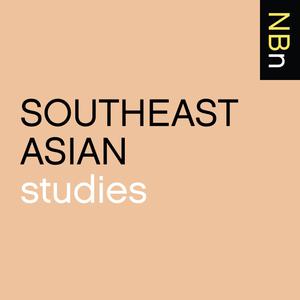
New Books in Southeast Asian Studies
Interviews with Scholars of Southeast Asia about their New Books
- 31 minutes 28 secondsTalking Thai Politics: Chanintorn Pensute, The Cost of Politics in Thailand
How much does it cost to become an MP in Thailand? Is entering parliamentary politics prohibitively expensive for ordinary people? Has the rise of the Move Forward Party (now the People’s Party) changed the landscape as regards candidate selection and campaign finance? Or do well-connected members of local political dynasties still exert a dominant role in determining who enters parliament?
In this podcast, Chanintorn Pensute, an associate professor in the Faculty of Political Science at Chiang Mai University, talks about a fascinating report she recently co-authored (with Pailin Phujeenaphan, an associate professor and Dean at the same Faculty) for the Westminster Foundation for Democracy, entitled The Cost of Politics in Thailand.
Chanintorn Pensute works mainly on electoral politics in Thailand, and gained her PhD from the University of Leeds. Her articles have appeared in Contemporary Southeast Asia and other journals.
Duncan McCargo is President’s Chair in Global Affairs at Nanyang Technological University.
Talking Thai Politics brings crafted conversations about the politics of Thailand to a global audience. Created by the Generation Thailand project at Nanyang Technological University, the podcast is co-hosted by Duncan McCargo and Chayata Sripanich. Our production assistant is Li Xinruo.
Talking Thai Politics Website
Support our show by becoming a premium member! https://newbooksnetwork.supportingcast.fm/southeast-asian-studies
27 January 2025, 9:00 am - 36 minutes 45 secondsBook Chat: The Life Story of Father Nguyễn, a Vietnamese Refugee Who Migrated to Taiwan, with Lin Shu-fen
In this podcast, the host, Lara Momesso, introduces a book she co-edited with Dr Polina Ivanova (University of Bremen) titled Refugees and Asylum Seekers in East Asia: Perspective from Japan and Taiwan (Palgrave MacMillan, 2024), and she interviews one of the authors of the book, Dr Shu-fen Lin, at National Yang Ming Chiao Tung University. In this chat, Shu-fen Lin explores the life story of a Vietnamese refugee, Father Nguyễn Văn Hùng, who escaped Vietnam via boat in the late 1970s and arrived in Japan, and then went to Australia and, eventually, Taiwan. The story of Father Nguyễn Văn Hùng intersects with the immigration and refugee policies of Japan, Australia and Taiwan, his fight for justice in Taiwan as well as Vietnam, and his future ambitions and goals.
For those who are interested to know more about this conversation, here you can find the link of the book and here the link of the specific chapter. The book is available open access, so feel free to share it with your network!
Support our show by becoming a premium member! https://newbooksnetwork.supportingcast.fm/southeast-asian-studies
26 January 2025, 9:00 am - 47 minutes 8 secondsKatharine E. McGregor, "Systemic Silencing: Activism, Memory, and Sexual Violence in Indonesia" (U Wisconsin Press, 2023)
The system of prostitution imposed and enforced by the Japanese military during its wartime occupation of several countries in East and Southeast Asia is today well-known and uniformly condemned. Transnational activist movements have sought to recognize and redress survivors of this World War II-era system, euphemistically known as "comfort women," for decades, with a major wave beginning in the 1990s. However, Indonesian survivors, and even the system's history in Indonesia to begin with, have largely been sidelined, even within the country itself.
In Systemic Silencing: Activism, Memory, and Sexual Violence in Indonesia (U Wisconsin Press, 2023), Katharine E. McGregor not only untangles the history of the system during the war, but also unpacks the context surrounding the slow and faltering efforts to address it. With careful attention to the historical, social, and political conditions surrounding sexual violence in Indonesia, supported by exhaustive research and archival diligence, she uncovers a critical piece of Indonesian history and the ongoing efforts to bring it to the public eye. Critically, she establishes that the transnational part of activism surrounding victims of the system is both necessary and fraught, a complexity of geopolitics and international relationships on one hand and a question of personal networks, linguistic differences, and cultural challenges on the other.
Support our show by becoming a premium member! https://newbooksnetwork.supportingcast.fm/southeast-asian-studies
19 January 2025, 9:00 am - 1 hour 15 minutesAdrian de Leon, "Bundok: A Hinterland History of Filipino America" (UNC Press, 2023)
In a book that pulls together both sides of the Pacific, Bundok: A Hinterland History of Filipino America (UNC Press, 2023) asks the question: what if we look at Filipino history not from the cities or the imperial metropoles, but from the mountains and the countryside? Or put another way, from the "bundok," the Tagalog word for "mountain" which American soliders in the late 19th century would come to use as a catachall for the places they found themselves fighting imperial wars. In Bundok, NYU history and FIlipino Studies professor Adrian De Leon tracks both the movement of European and American colonizers into the archipeligo, as well as how people and images moved beyond the islands and into the wider Pacific world, and how these pictures and these emigres shaped ideas about civilization, savagery, and the nature of Filipine identity itself. In a book that traces pathways from the mountains of Luzon to the mountains of South Dakota, De Leon demonstrates how the American West has always been a transnational space.
Support our show by becoming a premium member! https://newbooksnetwork.supportingcast.fm/southeast-asian-studies
11 January 2025, 9:00 am - 1 hour 11 minutesTaomo Zhou, “Migration in the Time of Revolution: China, Indonesia and the Cold War” (Cornell UP, 2019)
If tales of China’s radical ‘opening up’ to the world over the last 30 years imply that the country was somehow ‘closed’ before this, then one need only think of Beijing’s dalliances with various potential socialist allies during the Cold War to dispel this impression. There is, moreover, another equally important case in which people linked to ‘China’ were involved in transnational affairs at this time – namely that of overseas Chinese populations throughout the world. And, as Taomo Zhou’s fascinating Indonesia-centred account shows, in Southeast Asia the Chinese outside China were intimately entangled in a vast among of what was going on at this time on the diplomatic and political level.
Drawing on a trove of archival and fieldwork-derived material from multiple locations, Zhou’s Migration in the Time of Revolution: China, Indonesia and the Cold War (Cornell University Press, 2019) presents a rich account of the Indonesian-Chinese population’s involvement in regional and global affairs, mainly between the 1940s and the 1960s but also either side of this tumultuous window of time. As entertaining as it is rich in new insights, the book nimbly moves between China and different parts of Indonesia’s vast archipelago, in doing so painting a picture of the limitless diversity to migrant and diasporic experience and, in the process, helping us see apparently monolithic events like the Cold War in very human terms.
Ed Pulford is a postdoctoral researcher at the University of Amsterdam. His research focuses on friendships and histories between the Chinese, Korean and Russian worlds, and northeast Asian indigenous groups.
Support our show by becoming a premium member! https://newbooksnetwork.supportingcast.fm/southeast-asian-studies
1 January 2025, 9:00 am - 29 minutes 49 secondsChina and the Indo-Pacific: Policies and Global Implications
Why has the Indo-Pacific become the pre-eminent theatre of global geo-strategic and geo-economic competition? What is the interest and role of different actors such as China, Russia, the US, the EU and NATO in the region? How are small island developing states such as the Solomon Islands, Papua New Guinea, Kiribati, and Vanuatu affected by challenges in the new security environment?
In this episode, Professor Marina Svensson talks to Professor Anne-Marie Brady about her research on China’s strategic thinking and economic and political influence in the Indo-Pacific, with a particular focus on the small island states. The need for collaboration among like-minded partners in the region and other actors such as the EU is also addressed. This episode was produced and edited by Lisa Sihvonen and Tabita Rosendal.
Anne-Marie Brady is a professor of political science and international relations at the University of Canterbury, Christchurch, New Zealand. Professor Brady is a specialist on Chinese politics, polar politics, China-Pacific politics, and New Zealand foreign policy. She is founding and executive editor of The Polar Journal. She has published ten books and over fifty academic papers and also written op eds for the New York Times, The Guardian, The Australian, Sydney Morning Herald, The Financial Times, among others.
Further readings:
Anne-Marie Brady’s work on the indo-pacific:
- https://www.aspi.org.au/report/when-china-knocks-door-new-caledonia
- https://thediplomat.com/2024/06/facing-up-to-chinas-hybrid-warfare-in-the-pacific/
- https://www.aspistrategist.org.au/new-caledonia-crisis-a-turning-point-in-pacific-security/
- https://www.aspistrategist.org.au/china-in-the-pacific-from-friendship-to-strategically-placed-ports-and-airfields/
- The EU strategy: https://www.eeas.europa.eu/eeas/eu-indo-pacific-strategy_en
- On NATO strategy: https://www.cfr.org/blog/natos-indo-pacific-aspirations
This podcast was produced as part of EUVIP: The EU in the Volatile Indo-Pacific Region, a project funded by the European Union’s Horizon Europe coordination and support action 10107906 (HORIZON-WIDERA-2021-ACCESS-03).
The Nordic Asia Podcast is a collaboration sharing expertise on Asia across the Nordic region, brought to you by the following academic partners:
- · Asia Centre, University of Tartu (Estonia)
- · Asian studies, University of Helsinki (Finland)
- · Centre for Asian Studies, Vytautas Magnus University (Lithuania)
- · Centre for East and South-East Asian Studies, Lund University (Sweden)
- · Centre for East Asian Studies, University of Turku (Finland)
- · Norwegian Network for Asian Studies
Support our show by becoming a premium member! https://newbooksnetwork.supportingcast.fm/southeast-asian-studies
27 December 2024, 9:00 am - 55 minutes 31 secondsJuan José Rivas Moreno, "The Capital Market of Manila and the Pacific Trade, 1668-1838" (Palgrave Macmillan, 2024)
Many authors have written about the Manila Galleons, the massive ships that took goods back and forth between Acapulco and Manila, ferrying silver one way, and Chinese-made goods the other.
But how did the Galleons actually work? Who paid for them? How did buyers and sellers negotiate with each other? Who set the rules? Why on earth did the shippers decide to send just one galleon a year?
Juan José Rivas Moreno dives into these questions in his book The Capital Market of Manila and the Pacific Trade, 1668-1838: Institutions and Trade during the First Globalization (Palgrave Macmillan, 2024).
Juan José Rivas Moreno is a historian of early modern finance, specialising in the financing of the Pacific trade. He obtained his PhD in Economic History from London School of Economics in 2023 with a thesis on the capital market of Manila which received the Coleman Prize 2024. Juan José was the recipient of a Newberry Library short-term fellowship and held an Economic History Society Fellowship in 2023-2024. Currently he is a Max Weber fellow at the European University Institute in Florence.
You can find more reviews, excerpts, interviews, and essays at The Asian Review of Books, including its review of The Capital Market of Manila and the Pacific Trade. Follow on Twitter at @BookReviewsAsia.
Nicholas Gordon is an editor for a global magazine, and a reviewer for the Asian Review of Books. He can be found on Twitter at @nickrigordon.
Support our show by becoming a premium member! https://newbooksnetwork.supportingcast.fm/southeast-asian-studies
26 December 2024, 9:00 am - 25 minutes 48 secondsEnze Han, "The Ripple Effect: China's Complex Presence in Southeast Asia" (Oxford UP, 2024)
Many studies of China's relations with and influence on Southeast Asia tend to focus on how Beijing has used its power asymmetry to achieve regional influence. Yet, scholars and pundits often fail to appreciate the complexity of the contemporary Chinese state and society, and just how fragmented, decentralized, and internationalized China is today.
In The Ripple Effect: China's Complex Presence in Southeast Asia (Oxford UP, 2024), Enze Han argues that a focus on the Chinese state alone is not sufficient for a comprehensive understanding of China's influence in Southeast Asia. Instead, we must look beyond the Chinese state, to non-state actors from China, such as private businesses and Chinese migrants. These actors affect people's perception of China in a variety of ways, and they often have wide-ranging as well as long-lasting effects on bilateral relations. Looking beyond the Chinese state's intentional influence reveals many situations that result in unanticipated changes in Southeast Asia. Han proposes that to understand this increasingly globalized China, we need more conceptual flexibility regarding which Chinese actors are important to China's relations, and how they wield this influence, whether intentional or not.
The Ripple Effect makes the case that to understand China's relationship with Southeast Asia, it is necessary to move beyond a narrow fixation on the Chinese state by scrutinizing the ordinary manifestations of China's presence in the region and recognizing the multifaceted web of actors and their effects on the dynamics between the two regions.
Enze Han is an associate professor of politics at the University of Hong Kong. He works on the international relations of East Asia, Southeast Asian politics and China-Southeast Asia relations. This is his third single-authored book from Oxford University Press.
Enze is in conversation with Duncan McCargo, President's Chair in Global Affairs at Nanyang Technological University and one of the hosts on New Books in Southeast Asian Studies. Duncan's recent co-authored article on the relationship between Thai politics and attitudes to China, mentioned during the podcast, may be found here.
Support our show by becoming a premium member! https://newbooksnetwork.supportingcast.fm/southeast-asian-studies
26 December 2024, 9:00 am - 1 hour 1 minuteMelissa Johnston, "Building Peace, Rebuilding Patriarchy: The Failure of Gender Interventions in Timor-Leste" (Oxford UP, 2023)
Over the two decades since the adoption of United Nations Security Council Resolution 1325 on Women, Peace and Security, peacebuilding interventions around the globe have increasingly incorporated gender perspectives. These initiatives have used both development programs and gender mainstreaming to advance women's empowerment, with the aim of making peacebuilding more effective as well as building more stable societies and efficient economies. This goal has been manifested in a wide range of programs and projects-or "gender interventions"—including economic empowerment measures, gender quotas, gender-responsive budgeting, and legal reforms. Yet, the results have been uneven, provoking a sizable debate among scholars and practitioners seeking to explain the shortcomings and improve the outcomes.
In Building Peace, Rebuilding Patriarchy: The Failure of Gender Interventions in Timor-Leste (Oxford University Press, 2023), Dr. Melissa Johnston explains why gender interventions often fail to help those who most need them, using the case of Timor-Leste, a country subjected to high levels of peacebuilding and gender interventions between 1999 and 2017. Looking at three types of gender interventions—gender-responsive budgeting, the law against domestic violence, and microfinance initiatives—Dr. Johnston argues that these reforms have produced mixed results because they reinscribe entrenched class and gender hierarchies in their implementation.
This interview was conducted by Dr. Miranda Melcher whose new book focuses on post-conflict military integration, understanding treaty negotiation and implementation in civil war contexts, with qualitative analysis of the Angolan and Mozambican civil wars.
Support our show by becoming a premium member! https://newbooksnetwork.supportingcast.fm/southeast-asian-studies
21 December 2024, 9:00 am - 1 hour 11 minutesKevin D. Pham, "The Architects of Dignity: Vietnamese Visions of Decolonization" (Oxford UP, 2024)
In The Architects of Dignity: Vietnamese Visions of Decolonization (Oxford UP, 2024), Kevin D. Pham introduces Vietnamese political thought to debates in political theory, showing how Vietnamese thinkers challenge Western conventional wisdom. He traces an intergenerational debate among six influential figures in colonial Vietnam. These figures had competing visions for how the Vietnamese should respond to French colonial domination, what the Vietnamese should do with their traditions given the influx of political and social ideas from the West, and how they should harness feelings of national shame to construct national dignity. Their answers offer surprising lessons for how we in the West can enhance our understanding of decolonization, shame, dignity, and cross-cultural engagement.
Kevin D. Pham is an Assistant Professor of Political Science at the University of Amsterdam. He explores the history of political thought, particularly how thinkers outside "the West" have conceptualized democracy and anticolonialism, and how they challenge and enhance the field of political theory. He has special interests in Vietnam. His articles have been published in journals such as Theory & Event, Philosophy and Global Affairs, European Journal of Political Theory, The Review of Politics, Polity, New Political Science, The European Legacy, and Montaigne Studies. He is the author of The Architects of Dignity: Vietnamese Visions of Decolonization (Oxford University Press, 2024). He co-hosts a podcast about Vietnamese intellectual history called Nam Phong Dialogues. Kevin can be reached at [email protected]. His website is here: www.kevindoanpham.com.
Camellia (Linh) Pham is a PhD student in Comparative Literature at Harvard. Her research explores modern Vietnamese literature, literary translation across French, Vietnamese, English, and Chinese, and the literary history of French Indochina. She can be reached at [email protected].
Support our show by becoming a premium member! https://newbooksnetwork.supportingcast.fm/southeast-asian-studies
21 December 2024, 9:00 am - 17 minutes 16 secondsThreats to Academic Freedom in Thailand
What are the threats to academic freedom in Thailand? Why does the freedom of scholars and students matter for society at large and how are the attacks on Thai academia linked to the larger democracy movement in the region?
Julia Olsson, a doctoral student at the Center for East and South-East Asian Studies at Lund University, talks to Dr. Karin Zackari, a human rights scholar, about the Thai state’s attacks on academia in the past decade and the surprising parallel rise of dissent at Thai universities.
Dr. Karin Zackari is a researcher at the Department of History and the Center of East and South-East Asian Studies, Lund University. Zackari is the PI of the project **Cultivating identities and capitalism: Scandinavians and the Siamese royal elite in-between empires.** Since July 2024 she is involved in the EUVIP: The EU in the Volatile Indo-Pacific Region, a project funded by the European Union’s Horizon Europe coordination and support action 10107906 (HORIZON-WIDERA-2021-ACCESS-03).
Episode producer: Tabita Rosendal
Show links:
- New Threats to Academic Freedom In Asia
- The EU in the Volatile Indo-Pacific Region (EUVIP)
- The Academic Freedom Index
- Scholars at Risk Monitoring Project Index
The Nordic Asia Podcast is a collaboration sharing expertise on Asia across the Nordic region, brought to you by the following academic partners:
- Asia Centre, University of Tartu (Estonia)
- Asian studies, University of Helsinki (Finland)
- Centre for Asian Studies, Vytautas Magnus University (Lithuania)
- Centre for East and South-East Asian Studies, Lund University (Sweden)
- Centre for East Asian Studies, University of Turku (Finland)
- Norwegian Network for Asian Studies
Support our show by becoming a premium member! https://newbooksnetwork.supportingcast.fm/southeast-asian-studies
20 December 2024, 9:00 am - More Episodes? Get the App
Your feedback is valuable to us. Should you encounter any bugs, glitches, lack of functionality or other problems, please email us on [email protected] or join Moon.FM Telegram Group where you can talk directly to the dev team who are happy to answer any queries.
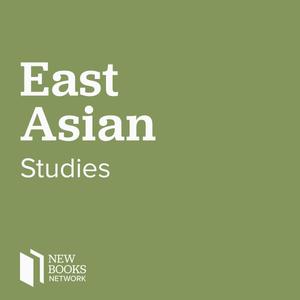 New Books in East Asian Studies
New Books in East Asian Studies
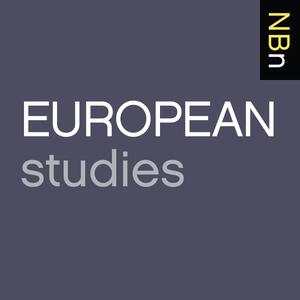 New Books in European Studies
New Books in European Studies
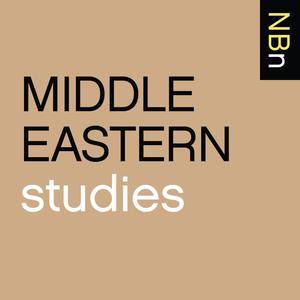 New Books in Middle Eastern Studies
New Books in Middle Eastern Studies
 New Books in World Affairs
New Books in World Affairs
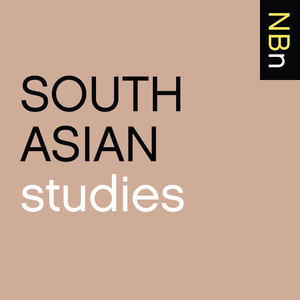 New Books in South Asian Studies
New Books in South Asian Studies
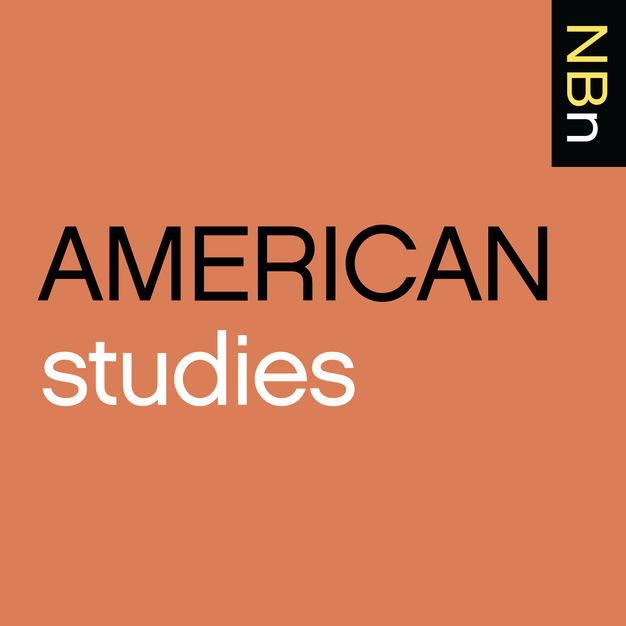 New Books in American Studies
New Books in American Studies